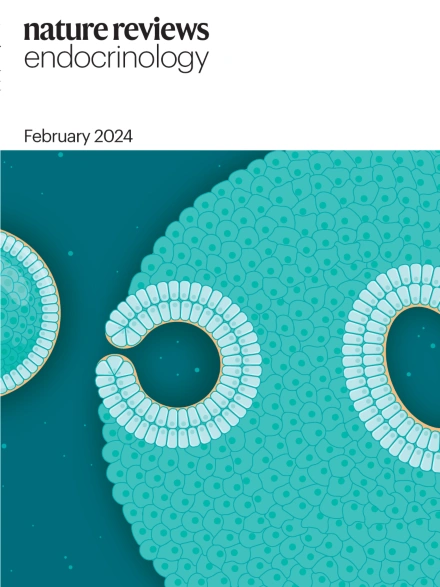炎症火花:肿瘤坏死因子如何改写胰岛素抵抗的故事
IF 40
1区 医学
Q1 ENDOCRINOLOGY & METABOLISM
引用次数: 0
摘要
早在“炎症”这个词在免疫代谢研究中获得突出地位之前,Gökhan S. Hotamışlıgil和他的团队就在研究一种关键的炎症参与者——肿瘤坏死因子(TNF)的分子机制,肿瘤坏死因子驱动肥胖诱导的胰岛素抵抗。在20世纪90年代,肥胖主要被认为是热量摄入和能量消耗不平衡的结果,并且在实验动物和人类中都与胰岛素抵抗高度相关。然而,1997年发表在《自然》杂志上的一篇论文改变了这种说法。脂肪组织中肿瘤坏死因子的表达可以驱动肥胖引起的胰岛素抵抗的想法并不完全是新的,但因果关系的问题仍然存在争议。升高的细胞因子如肿瘤坏死因子仅仅是肥胖期间脂肪组织中的旁观者,还是它们是全身性代谢功能障碍的积极驱动因素?Uysal等人大胆地回答了如果TNF基因被消除会发生什么的问题。本文章由计算机程序翻译,如有差异,请以英文原文为准。
The inflammatory spark: how TNF rewrote the insulin resistance narrative
求助全文
通过发布文献求助,成功后即可免费获取论文全文。
去求助
来源期刊

Nature Reviews Endocrinology
医学-内分泌学与代谢
CiteScore
42.00
自引率
0.70%
发文量
158
审稿时长
6-12 weeks
期刊介绍:
Nature Reviews Endocrinology aspires to be the foremost platform for reviews and commentaries catering to the scientific communities it serves. The journal aims to publish articles characterized by authority, accessibility, and clarity, enhanced with easily understandable figures, tables, and other visual aids. The goal is to offer an unparalleled service to authors, referees, and readers, striving to maximize the usefulness and impact of each article. Nature Reviews Endocrinology publishes Research Highlights, Comments, News & Views, Reviews, Consensus Statements, and Perspectives relevant to researchers and clinicians in the fields of endocrinology and metabolism. Its broad scope ensures that the work it publishes reaches the widest possible audience.
 求助内容:
求助内容: 应助结果提醒方式:
应助结果提醒方式:


